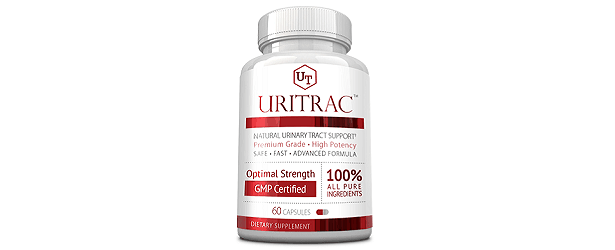
Urinary Tract Infections During Pregnancy
A urinary tract infection (UTI) is also known as acute cystitis or bladder infection and is an infection that affects part of the urinary tract. When it affects the lower urinary tract, it is known as simple cystitis, a bladder infection, and when it affects the upper urinary tract it is known as pyelonephritis, a kidney infection. The urinary tract system, also known as the renal system, consists of the kidneys, ureters, bladder, and the urethra. These organs produce, collect and expel urine from the body.
When the urinary tract gets infected the following are three types of infection that can occur.
 Cystitis is a bacterial infection causes your bladder to become inflamed. It happens when bacteria enter your bladder through your urethra, the tube that carries urine out of your body. Cystitis is a common type of lower urinary tract infection.
Cystitis is a bacterial infection causes your bladder to become inflamed. It happens when bacteria enter your bladder through your urethra, the tube that carries urine out of your body. Cystitis is a common type of lower urinary tract infection.- Urethritis is inflammation of the urethra. That’s the tube that carries urine from the bladder to the outside the body. Pain when urinating is the main symptom of urethritis.
- Pyelonephritis is an inflammation of the kidney tissue, calyces, and renal pelvis. It is commonly caused by a bacterial infection that has spread to the urinary tract or travelled through the bloodstream to the kidneys.
Pregnancy and UTIs
UTIs are more common during pregnancy because of changes in the urinary tract. The uterus sits directly on top of the bladder and as the uterus grows, its increased weight can block the drainage of urine from the bladder, causing an infection.
Symptoms of a UTI
- Pain, burning or discomfort when urinating

- The need to urinate more often than usual
- A feeling of urgency when you urinate
- Blood or mucus in the urine
- Cramps or pain in the lower abdomen
- Pain during sexual intercourse
- Chills, fever, sweats, and leaking of urine
- Waking up to urinate during the night
- Change in the amount of urine, either more or less
- Urine that looks cloudy, smells foul or unusually strong
- Pain, pressure, or tenderness in the bladder area
- When the bacteria spread to the kidneys you may experience back pain, chills, fever, nausea, and vomiting.
Having a UTI with no Symptoms
In pregnant women, hormones cause changes in the urinary tract, which predispose women to infections. In addition, a growing uterus presses on the bladder, preventing the urine from being completely expelled. This stagnant urine is a likely source of infection and if left untreated, the infection may lead to kidney infection. There are times when a UTI can go undetected and a urine sample will be taken to diagnose as well as determine the severity of the infection. If the test is positive, then a course of antibiotics will be administered to clear the infection.
If it is only a bladder infection, then the antibiotics are enough to clear the infection, but if you have a kidney infection hospitalization and intravenous fluids are given along with the antibiotics.
How to Prevent a UTI
 Stay hydrated by drinking plenty of fluids daily. Water can help flush bacteria from your system, prevent new infections and perhaps even flush the beginnings of an infection from your system.
Stay hydrated by drinking plenty of fluids daily. Water can help flush bacteria from your system, prevent new infections and perhaps even flush the beginnings of an infection from your system.
Take vitamins to help prevent infection as the right blend of vitamins can also boost your immune system, which can help your body fight off UTIs and other infections. Ask your doctor which vitamins are safe to use during pregnancy to ensure they won’t interact negatively with any medication you are taking.
Choose whole foods instead of overly refined or processed foods, or foods that contain a lot of sugar. Sugar can inhibit white blood cells in the body from fighting off bacteria, including the bacteria that cause UTIs.
Keep your genital area clean. Avoid using strong soap, cream, douches, powders and sprays. These products may increase the chances of contracting a UTI during pregnancy.
Go to the bathroom as soon as you feel the urge. Holding your urine in keeps bacteria in your bladder longer and gives it a greater chance of developing into an infection.
Go to the bathroom before and after sexual intercourse.
Wear loosely fitting pants and skirts. Tight, restrictive clothing may make it more difficult to completely empty your bladder, which will cause your urine to back up your urinary tract and cause infection.
TOP 5
URINARY TRACT INFECTIONTreatments |
|||||
| UTI Clear | Urizol | Native Remedies UTI-Clear | Nutrition Depot Urinary Tract Support | Pure Encapsulations Cranberry NS | |
|---|---|---|---|---|---|
| 1 | 2 | 3 | 4 | 5 | |
| Price (1 bottle) Price (6 bottles) Best Value |
$49.95 $139.80 |
$47.95 $287.70 |
$29.95 $179.70 |
$30.00 $180.00 |
$27.00 $162.00 |
| Overall Rating | 99.30% | 77.0% | 72.50% | 63.20% | 61.50% |
| Effectiveness |





|





|





|





|





|
| Speed of Results | Extremely Fast | Good | Average | Slow | Slow |
| Quality of Ingredients | Premium | Good | Average | Average | Average |
| Customer Satisfaction Evaluation | 99.40% | 76.50% | 74.20% | 67.10% | 60.5% |
| Safety Evaluation | Safe for Use | Safe for Use | Safe for Use | Safe for Use | Safe for Use |
| Customer Service Rating |





|





|





|





|





|
| Reorder Rate | Highest | Good | Good | Average | Average |
| Return Policy | Risk Free | Risk Free | Good | Unopened & Restocking Fee | 30 Days + Fee |
| Success Rate | 99.60% | 78.30% | 74% | 71.10% | 68.50% |

 Subscribe Now
Subscribe Now











